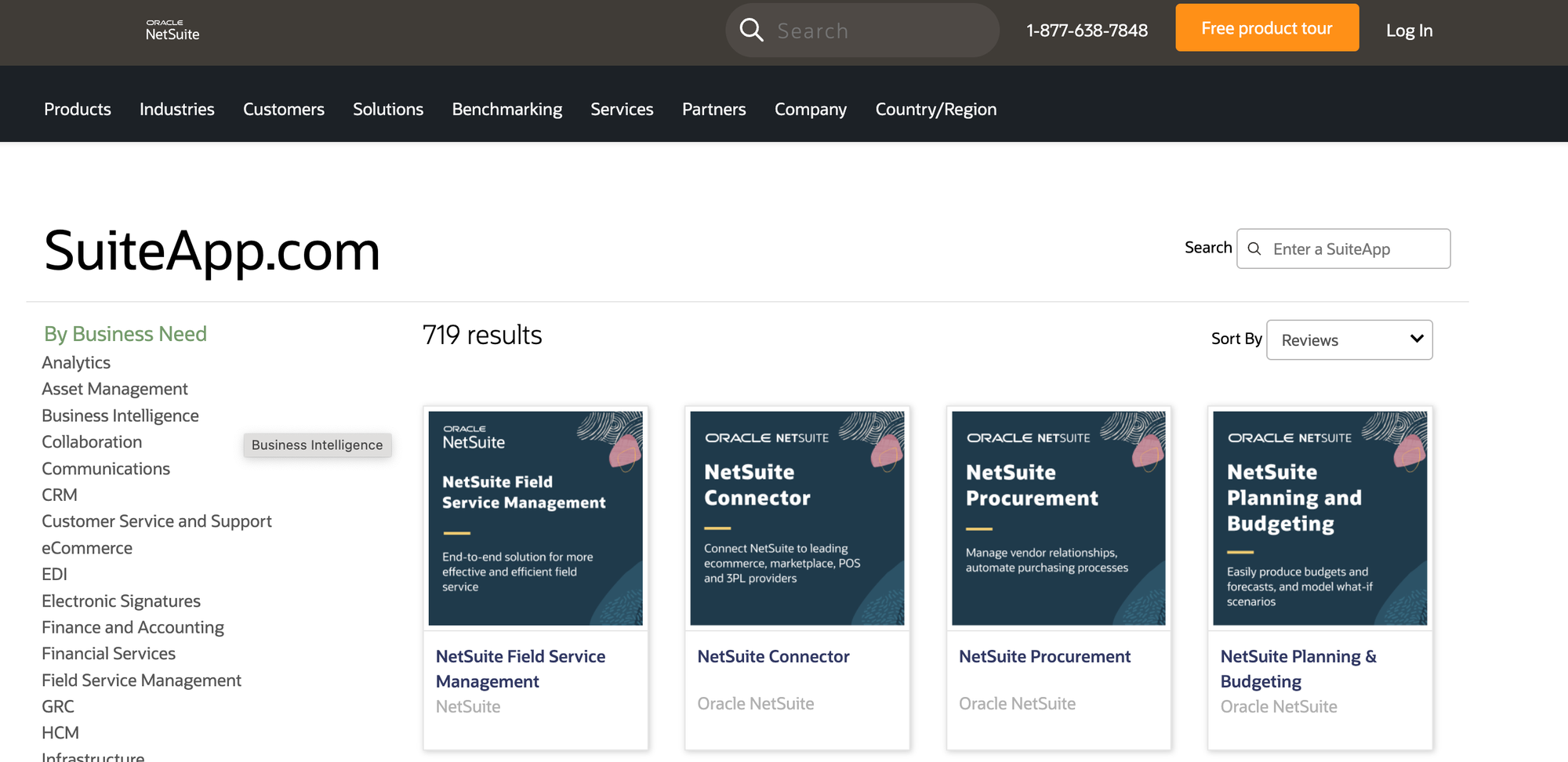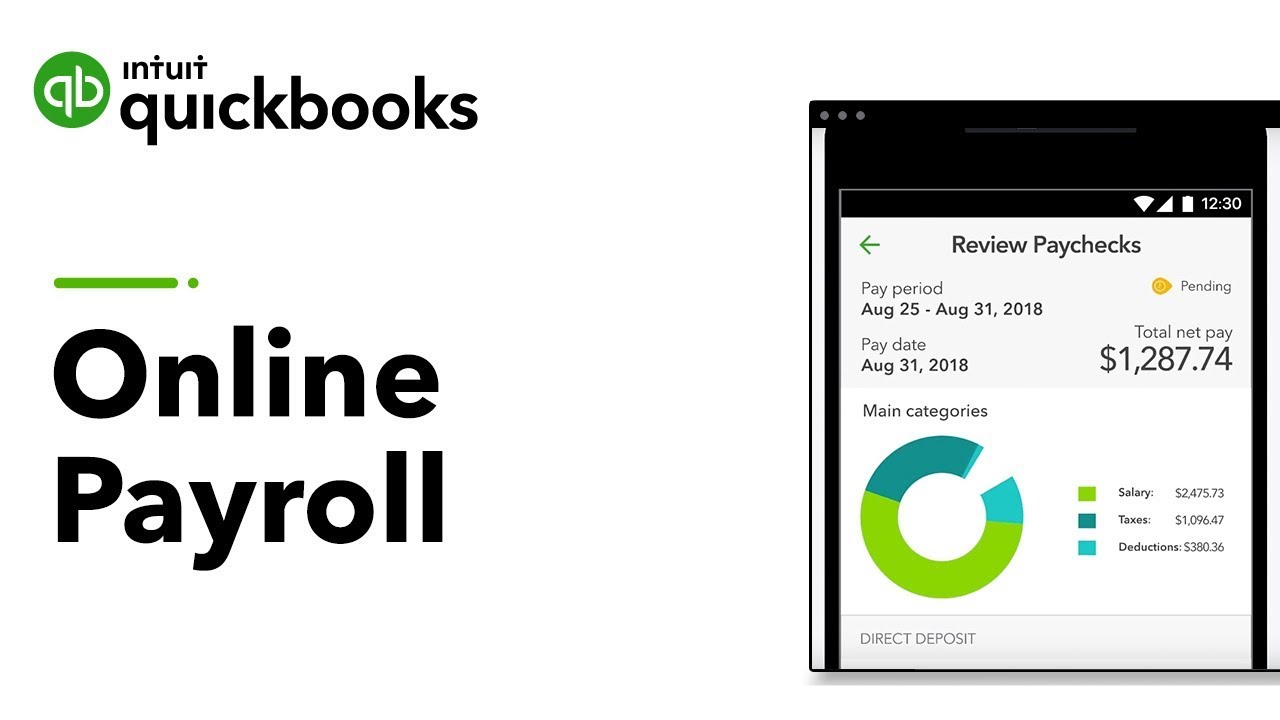
Almost every business needs help managing their finances because bookkeeping is largely manual. Fortunately, accounting software can automate many of the tasks related to financial management.
Two of the most popular accounting ERPs today are Oracle NetSuite (formerly NetSuite Accounting) and QuickBooks (formerly QuickBooks Accounting). These software solutions can save you time and money by automating many bookkeeping tasks. However, the two have some critical differences regarding features, business scope, ease of use and price.
Let's examine both options to help you decide which one is ideal for your business.
Oracle NetSuite: At a Glance

Oracle's NetSuite is more than just a business accounting solution. It offers a unified platform for enterprise resource planning (ERP), customer relationship management (CRM), e-commerce, inventory, and fulfilment management to simplify operations, enhance data visibility, and scale efficiently. In addition, NetSuite's analytical tools empower businesses to make better decisions and accelerate growth.
Oracle NetSuite is highly scalable and can be deployed on-premises or in the cloud. You can customize NetSuite to fit the needs of any business of any size, but it's best for multinational companies with complex accounting or ERP requirements.
Quickbooks: At a Glance

Intuit QuickBooks is software that helps businesses manage their finances. It can track income and expenses, create invoices and receipts, and generate reports. Businesses can also connect to their bank accounts and credit card companies, making it easy to keep track of all their financial information in one place.
QuickBooks comes in two different versions: QuickBooks Desktop and QuickBooks Online. The former is installed on a user's computer. Its Online version is a cloud-based program accessed from any internet-connected device. Both versions of QuickBooks offer similar features, but QuickBooks Online has additional features, such as real-time collaboration on the go and hundreds of app integrations.
NetSuite vs QuickBooks: Feature Level Comparison
General Ledger
One of the more basic requirements of any ERP - both tools have a General Ledger to record, analyze, and report financial transactions. Quickbooks has a slight edge in ease of analyzing with Tags and Dimensions, while NetSuite is overall more comprehensive and better at Journal Entries and Audit Trials.
Accounts Receivable & Accounts Payable
NetSuite has a robust AR section with invoice customization facilities, but Quickbooks' automation features make AR and collection much more accessible.
Both are capable of Accounts Payable Automation, but with support from Integrations like Nanonets, advanced AI can take AP automation to the next level.

Reporting and Analytics
Both software supports reporting and Analytics, with Quickbooks lauded as one of the easiest to use for reporting.
Netsuite offers custom reporting that is more in-depth and flexible, but comes at the cost of ease of use. Setting up custom reports on NetSuite is a tedious task.
Platform & Integrations
NetSuite is known for its customization capabilities, and Quickbooks is known more for its performance and reliability. They come with built-in workflow management, user access management, and Internationalisation. NetSuite, like QuickBooks, has a dedicated store with all compatible apps and connectors.

Both the softwares facilitate integrations while supporting apps and modules to extend the functionality of Quickbooks and NetSuite. With API, Integrations, and Import/Export facilities, all your existing applications and data sources are in good hands.
Cash Flow
With NetSuite, you can create cash flow forecasts, monitor cash balances, and create cash flow statements. With QuickBooks, you can monitor your company's cash flows and outflows, forecast cash needs, and make financial decisions. NetSuite and QuickBooks support them and allow for data import and access to historical data for Budgeting and Forecasting.
Payroll
With QuickBooks Payroll, Quickbooks has an edge over NetSuite in this area and comes at additional price. That being said, be it tax calculation or W2 Printing, NetSuite facilitates all everyday activities concerning payroll.

Inventory
With NetSuite or QuickBooks, you can manage inventory levels, purchase orders, and fulfill orders and generate inventory reports. With NetSuite, you can get more automation and customization, automate inventory workflows, and manage inventory across channels.
Support & Ease of Use
The interface of NetSuite can be more complicated than that of QuickBooks because NetSuite has more features and tools. The implementation process of NetSuite may also be more complicated, as it requires input from IT and financial professionals to ensure everything is set up and integrated correctly.
In comparison, QuickBooks is highly praised for its simplicity and user-friendliness. Its easy-to-use interface and user-friendly design make it an excellent choice for beginners, as it is easy to learn and use without much training.
NetSuite vs QuickBooks: Pricing

QuickBooks targets SMBs, and its pricing is the same. QuickBooks Online starts at $18/mo and goes up to $38/mo for its QuickBooks Online Plus+ plan. As one adds more QuickBooks services like QuickBooks Payments, this is bound to increase.
NetSuite, on the other hand, focused on medium and large enterprises. It does not have transparent pricing as it takes a case-on-case customized price quote based on requirements. However, an average NetSuite license typically starts at around $10,000/year.
NetSuite's strengths include modules and integrations, which means it can extend functionality and integrate with existing services efficiently when setting up itself. These integrations and setups mean personalized onboarding and price quotes for each company based on their requirements.
NetSuite vs QuickBooks: Alternatives
There are multiple alternatives to NetSuite and QuickBooks based on your requirements; you can also look at those. Some of the popular options are listed below:

Microsoft Dynamics 365
Best for businesses without an existing CRM, as it offers a CRM-like experience. It also has unique sales and marketing automation tools that many NetSuite / QuickBooks alternatives lack while offering third-party integrations to support many business needs.
Pros:
- Scales with your company
- Enhances efficiency by offering real-time data
Cons:
- Navigation takes some trial and error due to a cumbersome UI
- Price for small business budgets
Sage Intacct
Best for large or enterprise clients due to advanced integrations, like Salesforce, and a robust marketplace that includes Nanonets, which offers features like streamlined Sage accounts payable automation benefits.
Pros:
- Accounting workflows are straightforward to manage
- Cloud-based platforming ensures constant access
Cons:
- No international payment features
- Initial setup is time-consuming
Xero
Best suited for internationally focused clients, catering to small businesses and startups seeking efficient and streamlined cross-border payment options
Pros:
- Cross-border payment processing and tax compliance
- Cloud-based and accessible from anywhere
Cons:
- Fewer reporting features than other platforms
- Some claim customer service is not as responsive as they'd prefer
Other options include Zoho Books and Freshbooks.
NetSuite vs QuickBooks: Conclusion
Whether you're a small or large business, NetSuite or QuickBooks are two excellent accounting software options that can help you manage your finances. Each has its strengths and weaknesses, but NetSuite is better suited for businesses that need a comprehensive accounting and ERP solution. On the other hand, QuickBooks is a more straightforward accounting program that can be used for basic accounting tasks such as invoicing, payroll, and mileage tracking.
Which one is better for you?
NetSuite is a powerful business management solution that provides advanced features like CRM (Customer Relationship Management), ERP (Enterprise Resource Planning), and e-commerce (E-commerce) solutions. It's perfect for businesses that want a comprehensive solution to manage all aspects of their business.
QuickBooks is a simple accounting program for small businesses and self-employed people who need basic accounting functionality.
Both come with incredible integrations like Nanonets to simplify your life. Nanonets takes care of your accounts payable automation and bank reconciliation with its advanced AI for optical character recognition (OCR). Schedule a call with a Nanonets expert to take your ERP experience to the next level.
